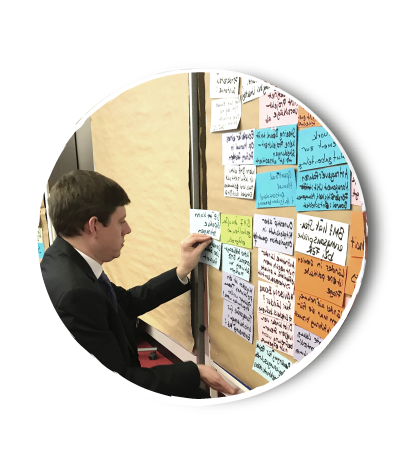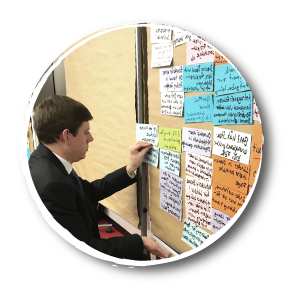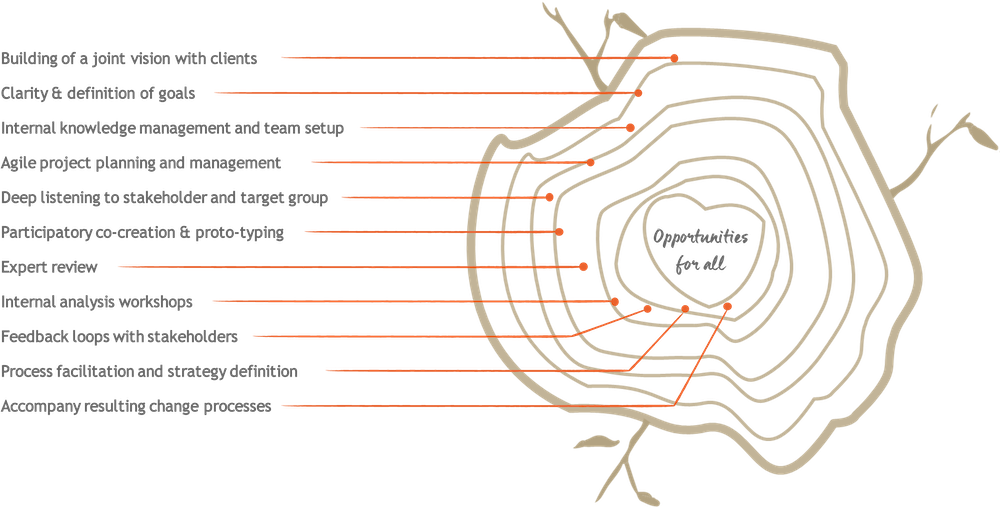

For us, consultancy goes beyond the simple provision of expert advice to achieve specified targets. We are convinced that complex tasks in the field of development can only be solved by combining analytical skills with intuitive knowledge built through extensive experience and an ability for deep listening. While structured consultancy methods form an important aspect of our work, managing and engaging with complex networks of stakeholders has proven to be a critical success factor in many of our assignments.
We have developed a methodical approach which we use as a guideline when providing our services. This core approach has developed over the years akin to the rings of a tree, with the goal of fostering opportunities for all constituting the root principle around which we structure our work.

At the beginning of a new assignment, we take time to build a joint vision with our clients, which not only guides our work, but also creates a shared sense of purpose among all stakeholders involved. Based on this vision, we then derive clearly defined goals. The concrete project set-up draws on the internal knowledge we have accumulated over the course of our different assignments. We carefully define roles and responsibilities within our teams to best accommodate the specific requirements of each project. Depending on the complexity of the assignment, we organise our work processes according to classical or agile project management methods, such as Scrum or Kanban.
In the data collection phase, we conduct joint co-creation workshops and participatory prototyping to go beyond our own initial ideas. Understanding how local realities intersect with global development challenges requires deep listening, especially to the needs of the target group. Fortunately, connecting to local communities has become much easier with increased digital connectivity.
For our analysis, we ask experts for their perspectives and combine data analysis with intuitive knowledge. In our internal analysis workshops, we bring together all the different pieces and perspectives and love to try out innovative methods to reflect and structure them.
Sharing updates about project progress with our clients is essential to us. We therefore include regular feedback loops in all projects, either in bi-monthly intervals or after each project milestone. To ensure that interactions with our clients and project stakeholders are both participatory and efficient, we use tailored facilitation methods in our internal and external meetings.
Assignments often result in the development of new strategies which may require organisational adaptation to be fully incorporated. Our moderation methods and facilitation skills enable us to accompany these change processes. We provide the necessary knowledge, coaching or training to ensure their success.
